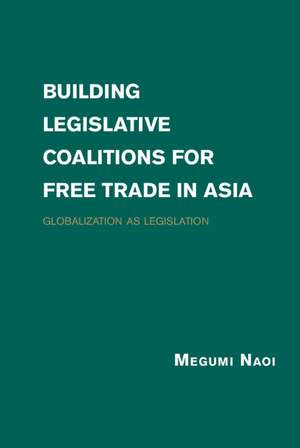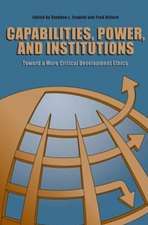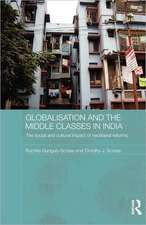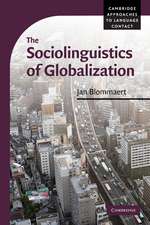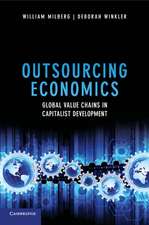Building Legislative Coalitions for Free Trade in Asia: Globalization as Legislation
Autor Megumi Naoien Limba Engleză Hardback – 19 iul 2015
Preț: 788.98 lei
Preț vechi: 917.42 lei
-14% Nou
Puncte Express: 1183
Preț estimativ în valută:
150.97€ • 157.95$ • 125.41£
150.97€ • 157.95$ • 125.41£
Carte tipărită la comandă
Livrare economică 03-17 aprilie
Preluare comenzi: 021 569.72.76
Specificații
ISBN-13: 9781107037038
ISBN-10: 1107037034
Pagini: 230
Ilustrații: 17 b/w illus. 27 tables
Dimensiuni: 160 x 237 x 20 mm
Greutate: 0.51 kg
Editura: Cambridge University Press
Colecția Cambridge University Press
Locul publicării:New York, United States
ISBN-10: 1107037034
Pagini: 230
Ilustrații: 17 b/w illus. 27 tables
Dimensiuni: 160 x 237 x 20 mm
Greutate: 0.51 kg
Editura: Cambridge University Press
Colecția Cambridge University Press
Locul publicării:New York, United States
Cuprins
Part I. Building Open Economy Coalitions: 1. Optimal use of pork, policy, and institutional reforms; Part II. Empirical Evidence: 2. Use of pork as side-payment; 3. Pro-loser policy during hard times; 4. Helping losers survive elections: use of institutional reforms; 5. Japanese legislators in rival regions; 6. Thai legislators' position-taking on foreign retail investment; Part III. Discussion: 7. Globalization as legislation: discussion.
Recenzii
'In this important book, Naoi refocuses the debate on trade politics to pay serious attention to the role of politicians. She argues that political leaders (such as prime ministers) use their control over government resources to shape and mobilize support for their desired trade legislation. It is a great contribution to studies of trade and globalization.' Margarita Estevez-Abe, Maxwell School, Syracuse University, New York
'Naoi offers a novel view of how countries achieve trade liberalization. Most books do well to challenge at least one conventional wisdom, but Naoi successfully challenges at least three of them. First, the book refutes the common notion that legislators have limited policy-making autonomy and never deviate from their district's interests. Second, the book questions whether compensation strategies occur only in response to the needs and demands of firms or voters hurt by liberalization. Third, compensation strategies that buy support for liberalization can take a wide variety of forms not considered by previous research on this topic, such as subsidies, public work projects, personnel appointments, and even institutional reform. This books promises to make a significant contribution to our understanding of the political foundations of an open economy.' Nita Rudra, Georgetown University, Washington DC
'Naoi offers a novel view of how countries achieve trade liberalization. Most books do well to challenge at least one conventional wisdom, but Naoi successfully challenges at least three of them. First, the book refutes the common notion that legislators have limited policy-making autonomy and never deviate from their district's interests. Second, the book questions whether compensation strategies occur only in response to the needs and demands of firms or voters hurt by liberalization. Third, compensation strategies that buy support for liberalization can take a wide variety of forms not considered by previous research on this topic, such as subsidies, public work projects, personnel appointments, and even institutional reform. This books promises to make a significant contribution to our understanding of the political foundations of an open economy.' Nita Rudra, Georgetown University, Washington DC
Notă biografică
Descriere
This book argues that politicians, especially party leaders, liberalize trade by buying off legislative support with side-payments.
